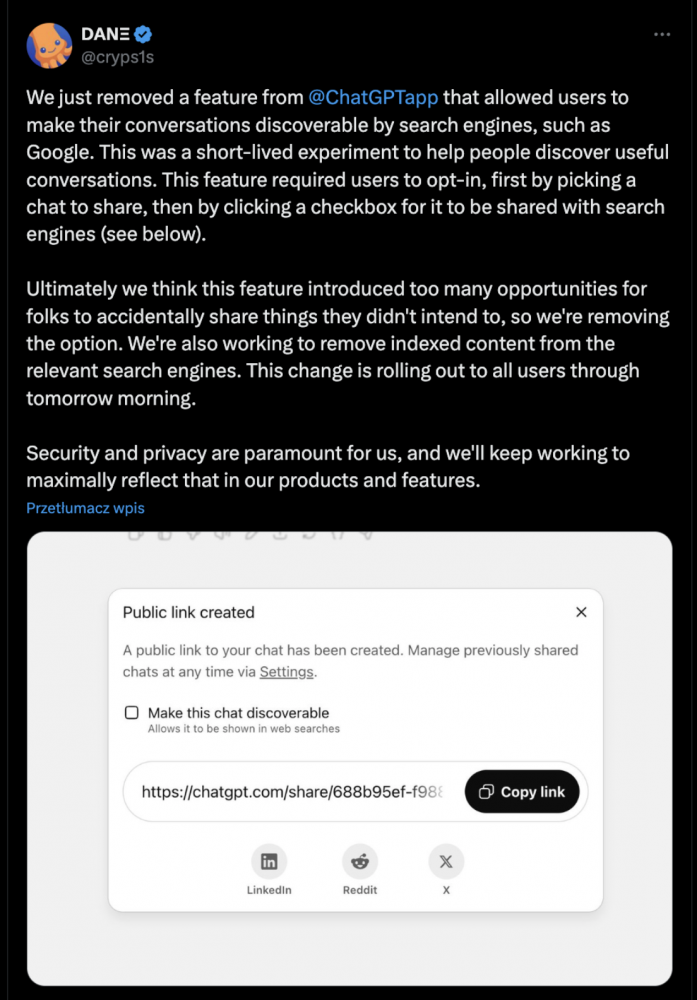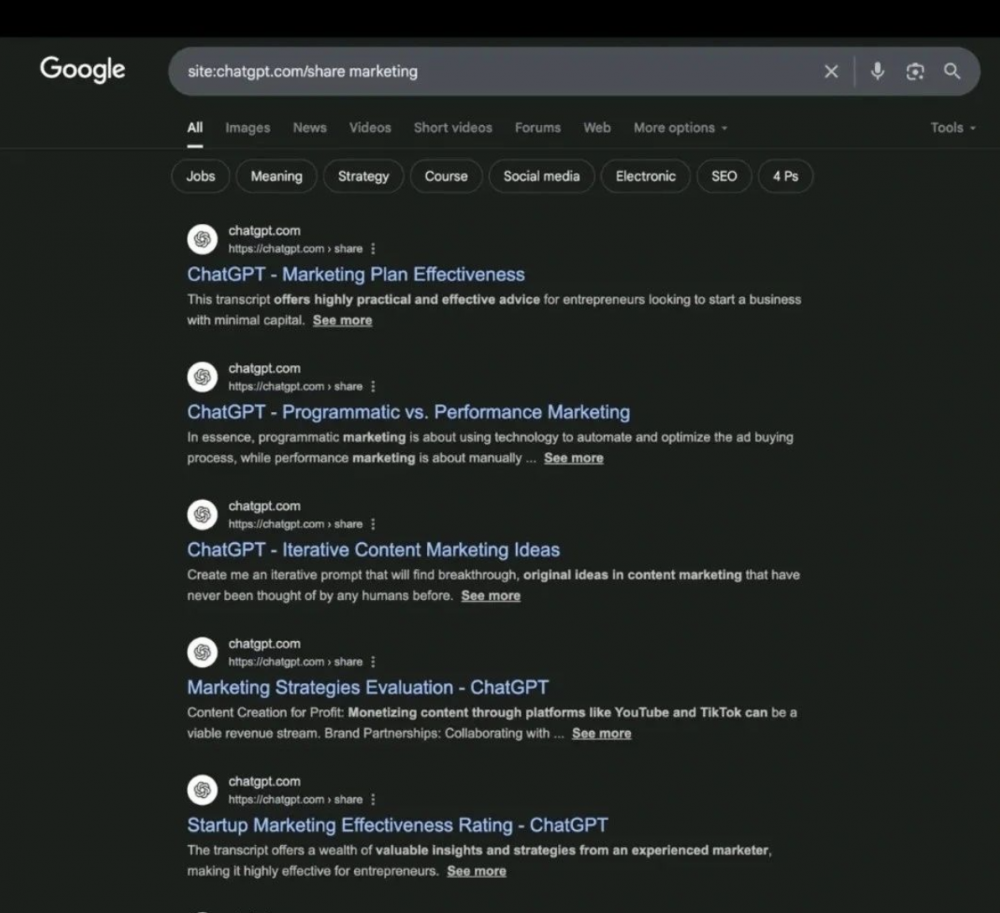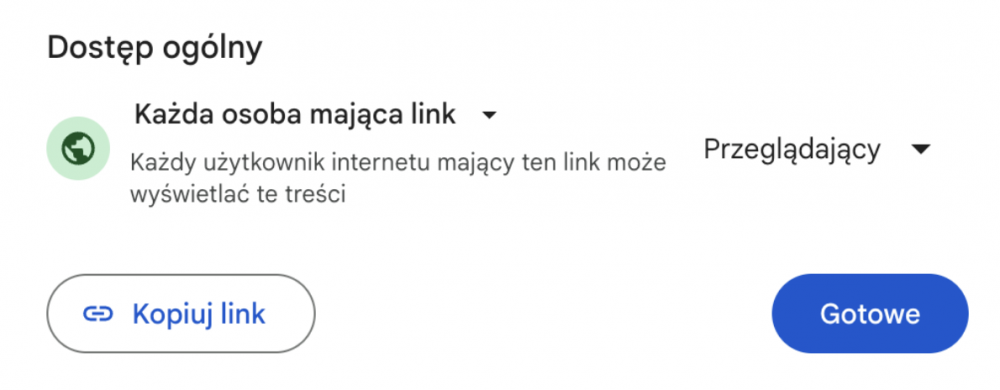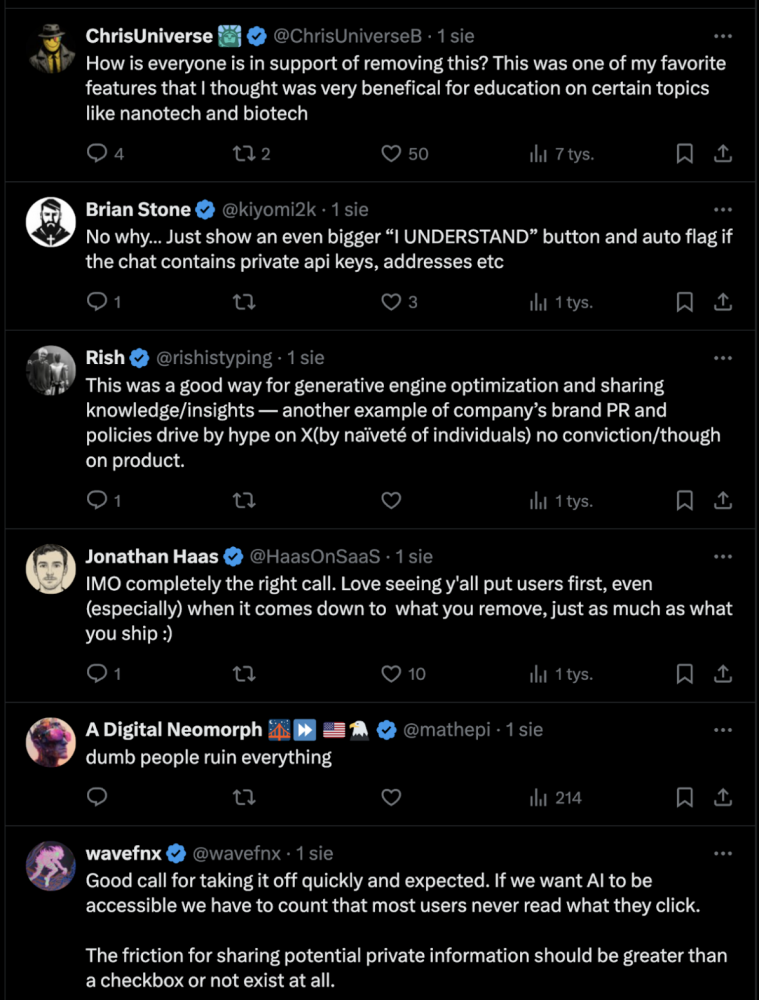🔎 Search engines indexed private conversations of ChatGPT users

OpenAI announced that it had removed a feature from ChataGPT that allowed users to have their public conversations indexed by search engines. The company described this as a short-lived "experiment" and withdrew after noticing instances of unintentional sharing of, sometimes very private, communications. OpenAI also announced that it was working to remove conversations that had already been indexed by search engines. It might seem that everything is fine and OpenAI's thoughtfulness and quick action should be commended, right? Unfortunately, not. The matter is a bit more complicated.
Source: https://x.com/cryps1s/status/1951041845938499669
Until recently, by filtering search engine results by typing site:chatgpt[.]com/share, you could see other people's conversations.
This wasn't the default setting. It only happened when the user intentionally clicked the "share" button in their chat and then clicked "create link." The option also included information that the user's name, assistant personalization options (not to be confused with the prompt), and any messages added after sharing would remain private. After clicking to create the link, the user could toggle whether they wanted the link to be discoverable. Was this information sufficient to ensure the user understood the full implications of this action?
There are doubts about this. TechCrunch uncovered a conversation in which a user asked ChatGPT to tailor their CV to a specific job posting. Data from the conversation allowed us to find this person on LinkedIn and determine that they likely didn't get the job. The user may not have anticipated that other search engines would index the shared links to ChatGPT, which could potentially reveal personal information, as was the case here.
“We’ve been testing ways to make it easier to share helpful conversations while maintaining control for the user, and recently completed an experiment where conversations could appear in search results if the user explicitly opted in when sharing,” an OpenAI spokesperson told TechCrunch.
Considering the issue from a search engine perspective, it's worth noting that the same situation occurs if you share a file from Google Drive with the setting "Any internet user with this link can view content." Google can index it in the search engine.
Source: Google Drive
User opinions are, as usual, divided. Some believe that OpenAI's "experiment" was doomed from the start and that testing new features that potentially violate privacy was inappropriate. Others lament the removal of content indexing, which helped them share valuable knowledge with others.
As mentioned at the beginning, this is unfortunately not the end of the story. Shortly after the announcement of ChataGPT's deprecation, an article appeared online, Digital Digging, which describes the investigation and disclosure of 110,000 conversations preserved by the Wayback Machine, aka Archive.org. Has OpenAI forgotten the fundamental principle of the internet, from which "nothing truly disappears"?
According to researchers, in one conversation, an Italian-speaking lawyer for a multinational energy corporation revealed a strategy to displace indigenous communities in the Amazon. The user introduced himself: "I am a lawyer for an international group operating in the energy sector that intends to displace a small indigenous Amazonian community from their territories to build a dam and a hydroelectric power plant there."
The conversation allegedly revealed plans to build a 15,000-megawatt hydroelectric power plant, and the lawyer asked point-blank, “How can we negotiate the lowest possible price with these indigenous people?” He admitted that indigenous people “don’t know the monetary value of land and have no idea how the market works”—which, in practice, meant they wanted to exploit that ignorance for corporate profit.
According to Digital Digging, OpenAI, in its attempt to clean up, failed to take into account that in addition to the original links, there are also archived links, and anyone who knows them (or knows how to search) still has access to them thanks to archive.org and other archivers.
Source: sekurak.pl






